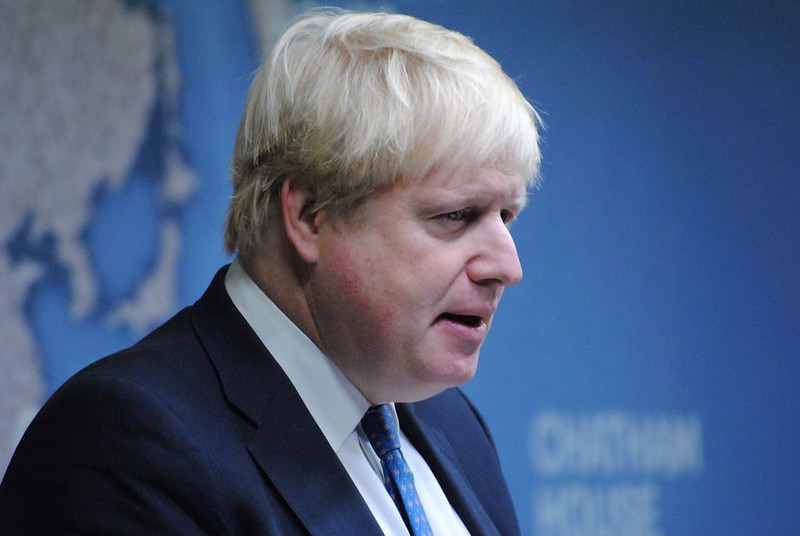The fact that Boris Johnson is in intensive care following his COVID-19 diagnosis reminds us that the UK is unusual in not having a clear system of who to turn to when the prime minister is incapacitated.
Other countries, such as Australia, have a designated deputy prime minister who would likely take the helm in similar circumstances. Similarly, the Republic of Ireland has the post of tánaiste, and the US, under its presidential system, has the vice president.
In the UK, there have from time to time been senior ministers who have been accorded the title “deputy prime minister”, but this position remains constitutionally unrecognised and confers no automatic right of succession or of replacement should the prime minister become temporarily incapacitated. The last holder of the title, Nick Clegg, only received his salary because he held another more constitutionally secure office (that of lord president of the council).
However, prime ministers do tend to crave the support that deputies provide. So ministers are often appointed to take on the duties expected of such a position even if the true nature of their role is semi-concealed, and alternative titles have been used or created to avoid officially using the “D-word”.
Foremost of these is first secretary of state. This position was created in 1962 by Harold Macmillan as a means denoting the seniority of R.A. (“Rab”) Butler – who Macmillan distrusted but found useful – without causing a rift with the Palace.
Though signifying Butler’s position more clearly than before, Macmillan did clarify that this new role would only involve Butler “acting” as deputy and that the constitutional position remained unchanged. In reality becoming first secretary simply meant that Butler was expected to take on more of the mundane aspects of Macmillan’s behind-the-scenes co-ordination role. That generally just meant chairing various cabinet committees (a state of affairs faced by some more recent first secretaries). A rueful Butler later commented that this new title should be “neither conferred nor accepted”.
Defining the role
Despite Butler’s warning, ten first secretaries have subsequently picked up the relevant seals of office. However, a job description has never been established. Usually the first secretary has been the second most senior figure in the cabinet, so the one to chair the cabinet in the prime minister’s absence. They also are often the likely stand-in at prime minister’s questions in parliament – but even that isn’t guaranteed. Barbara Castle was first secretary from 1968-1970, serving under Labour prime minister Harold Wilson, but she did not perform – or expect to perform – any “acting as deputy” roles. Similarly, William Hague was first secretary to David Cameron from 2010 to 2015, but Nick Clegg was the widely recognised deputy.
Moreover, first secretaries tend to have other “real” positions that usually mask any duties they perform as first secretary. For example, until very recently, Raab’s position as foreign secretary overwhelmed any public awareness that he was also first secretary. That attention focused on Raab as a likely stand-in once it became clear the prime minister was more seriously ill than originally believed demonstrates that the badge of “first secretary” still suggests seniority.
However this sense of pre-eminence is largely an illusion. The prime minister could have chosen someone else. With the British constitution, nothing is set in stone.
What next for Raab?
Raab will be expected to chair the cabinet and the special coronavirus “war cabinet”. However, most other functions of the prime minister such as weekly meetings with the Queen will be put on hiatus. The chairing of cabinet committees (Boris Johnson chairs all but two of the seven committees) will almost certainly be taken over by other colleagues or suspended during the crisis.
While Raab holds one of the four high offices of state in the UK (the other three being Johnson as prime minister, Rishi Sunak as chancellor and Priti Patel as home secretary) he does not have the same political capital in cabinet or in the party as some of his predecessors as first secretary. Previous acting prime ministers, notably Bonar Law when David Lloyd George was struck down with Spanish flu in 1919 and was put on a respirator, was reticent to make decisions without liaising with the prime minister.
Raab also lacks some political capital as has he was not been elected to the post of “deputy” by either his party (as was the case for John Prescott as deputy prime minister and deputy leader of the Labour party) or the country as is the case for vice presidents. In times of crisis Whitehall and the country will demand assertive leadership and this will be difficult for Raab to convey when he does not have his own mandate to make decisions.
Indeed, when it was announced he was to fill in for the prime minister, Downing Street still used measured language, saying that he would deputise “where necessary”. It wasn’t until the following day that anyone reached a decision on whether Raab would have the authority to make military decisions if needed.
Current events have shone more light on the position of first secretary than at any stage since the post was created back in 1962. Unfortunately, this additional illumination has not made the position any more distinct.



 Trump Says “Very Good Talks” Underway on Russia-Ukraine War as Peace Efforts Continue
Trump Says “Very Good Talks” Underway on Russia-Ukraine War as Peace Efforts Continue  Japan Election 2026: Sanae Takaichi Poised for Landslide Win Despite Record Snowfall
Japan Election 2026: Sanae Takaichi Poised for Landslide Win Despite Record Snowfall  Nasdaq Proposes Fast-Track Rule to Accelerate Index Inclusion for Major New Listings
Nasdaq Proposes Fast-Track Rule to Accelerate Index Inclusion for Major New Listings  Trump Signs Executive Order Threatening 25% Tariffs on Countries Trading With Iran
Trump Signs Executive Order Threatening 25% Tariffs on Countries Trading With Iran  Trump Lifts 25% Tariff on Indian Goods in Strategic U.S.–India Trade and Energy Deal
Trump Lifts 25% Tariff on Indian Goods in Strategic U.S.–India Trade and Energy Deal  Iran–U.S. Nuclear Talks in Oman Face Major Hurdles Amid Rising Regional Tensions
Iran–U.S. Nuclear Talks in Oman Face Major Hurdles Amid Rising Regional Tensions  Norway Opens Corruption Probe Into Former PM and Nobel Committee Chair Thorbjoern Jagland Over Epstein Links
Norway Opens Corruption Probe Into Former PM and Nobel Committee Chair Thorbjoern Jagland Over Epstein Links  Trump Backs Nexstar–Tegna Merger Amid Shifting U.S. Media Landscape
Trump Backs Nexstar–Tegna Merger Amid Shifting U.S. Media Landscape  JPMorgan Lifts Gold Price Forecast to $6,300 by End-2026 on Strong Central Bank and Investor Demand
JPMorgan Lifts Gold Price Forecast to $6,300 by End-2026 on Strong Central Bank and Investor Demand  Trump Endorses Japan’s Sanae Takaichi Ahead of Crucial Election Amid Market and China Tensions
Trump Endorses Japan’s Sanae Takaichi Ahead of Crucial Election Amid Market and China Tensions 

































